The happy spread of all four regional subspecies of Meleagris gallopavo (eastern, Merriam’s, Osceola, Rio Grande) has created hunting opportunities of a scope unimaginable to earlier generations of hunters.
As wild turkeys again flourished and the 20th century was coming to a close, a handful of avid hunters set their individual sights on pursuing an ambitious feat: killing a wild turkey in each of the 49 states where they were now thrived. One by one, these individuals topo-mapped their way across the country, methodically planning hunt after hunt, and tagging a prize bird in state after state, year after year. And then, one magic spring day, each pulled the trigger on the bird in his 49th state.
Two hunters accomplished the remarkable feat in 1997: Jim Hascup of Ringwood, New Jersey and Rob Keck of Edgefield, South Carolina. Bill Wilson of Huelett, Wyoming and Clyde Metz of Gibhans, South Carolina each killed their 49th-state bird in 2003. Earl Mickel of Beach Lake, Pennsylvania completed his quest in 2005. Tom “Doc” Weddle of Bloomington, Indiana followed in 2006; Jon Pries of Trout Run, Pennsylvania in 2008; and Randy Stafford of Franklinton, Louisiana in 2010. In 2011 the National Wild Turkey Federation recognized Daniel Rorrer of Pulaski, Virginia for being the first hunter to register birds tagged in all 49 states, officially calling it a United States Wild Turkey Super Slam. The same year, 2011, Doc Weddle repeated with an amazing second Super Slam, only five years after his first. In 2012 Clyde Neely of Kingwood, Texas and James Wilhelm of Eagle Rock, Virginia joined the exclusive club. Three years later, in 2015, Jeff Budz of Okeechobee, Florida registered his 49th state with N.W.T.F. Then, as I was planning this book in the spring of 2016, three more hunters completed the Super Slam: David Ellis of Crestview, Florida; Tony Hudak of Noxen, Pennsylvania; and Dave Owens of Acwoth, Georgia.
As I began my research, I learned that Metz and Mickel were deceased. All the others were still alive.
I became fascinated with this saga. Who were these guys? What made them tick? Who taught them to hunt? What did they do for a living that allowed them the lavish time off to hunt for weeks on end? Were they ordinary hunters or were they wealthy? What motivated them to chase wild turkeys from coast to coast, north to south? Did they drive or fly to all these far-flung places? What challenges did they face? What adventures did they experience? Where there secrets to their success?
How secretive were they—and would they even talk with me?
I started making telephone calls. I learned that they would indeed talk with me. I heard passion and enthusiasm in their voices. I reached several while they were in the middle of hunts, their cell phones cutting out when mountains got in the way. To a man they called me back.
How to proceed? Long talks would be required. To get their full stories, I would have to interview them. For more than four decades, a core part of how I have earned my living has been interviewing talented hunters and anglers. It’s been fun. Along the way I have met some amazing people while becoming a better sportsman myself from listening to their generous storytelling. I have always respected my colorful subjects and tried to work hard at my craft to accurately portray their extraordinary lives.
To interview these turkey men, I considered my options. In short order I concluded what I suppose I really knew all along: that the only way to do this right was to go see these devout turkey hunters in person. I had to sit down with each in his trophy room or living room. I wanted to hear their stories first hand, eye to eye, across their kitchen tables or on their porches. I started booking airline tickets.
During June 2016, I visited and interviewed the six individuals featured in Volume 1 of Turkey Men. Later in June and in July I visited six others who had reached the coveted Super Slam; their equally compelling stories will be featured in the second volume of Turkey Men to be released in February 2018. The second volume will come with a free CD or MP3 Download of a special studio recording session of Weddle and Owens talking turkey.
A word on style and approach. I have definite ideas about how an interview should be conducted and presented in print. I came of age reading the great, free-wheeling interviews in Playboy and Rolling Stone. Later I discovered the treasure trove of interviews in The Paris Review. These were long, rough, rambling talks. They were not neatly organized. Most were barely edited, or so it seemed. That’s what made them so riveting. There was a rawness that spoke to me: I felt I was listening to this person unvarnished or, in today, jargon, unfiltered. When I read these interviews, I had the sense I was sitting right there, eavesdropping on conversations with the likes of Jim Harrison, Hunter S. Thompson, Clint Eastwood, Pete Rose, Stephen King, Ted Turner, Johnny Cash, Tom Wolfe, Jack Nicholson, Keith Richards and many, many others.
So off to talk turkey. Tongue in cheek, I called my whirlwind trip Tom’s Turkey Marathon: up and down in the sky every other day, from one airport to the next; in and out of rental cars; chasing the dozen extraordinary turkey hunters across the country with the same intensity they chased the birds. The irony was not lost on me. At each stop I turned on two Sony IC digital recorders simultaneously—one for backup. Upon my return, I uploaded the MP3 digital files to an online program called VoiceBase, which produced rough machine transcriptions of my interviews. I spent the next three months of summer and into autumn working every day, including weekends, replaying and listening to every word, every sentence. This process was tedious. Progress some days was glacial. It was a slog. But I was committed to getting it right.
My work demanded attention to detail on several levels.
First, for authenticity, I had to make sure my first working draft matched exactly what each person said—no easy task since machine voice transcriptions, as I quickly learned, don’t do especially well with technical terms such as extra-full-choke and with regional dialects (hens became “hands”).
Second, once I had listened carefully to the conversation and was satisfied I had not missed anything important, and had it down verbatim, I went back and started in again. I eliminated distracting repetitions of words and phrases (which we all are guilty of when speaking extemporaneously). I cleaned up some—but not all—run-on sentences. I removed a thicket of “you knows,” which many of us routinely interject as pauses in our comfortable conversation, while leaving enough you knows scattered throughout so as not to drain the speaker of his natural manner of speech. Answer after answer, I did my best to listen carefully, often multiple times, to preserve the speaker’s cadence and original voice. I left in as many colloquialisms as possible.
I went back through each entire interview a third time, focusing on fragmented sentences and responses that were begun but not fully completed. Sometimes I deleted them, sometimes I fleshed them out discreetly to clarify what I was pretty sure the speaker meant. The whole point of my editing was authenticity, after all, not incoherence.
Where I could not decipher the exact spelling from the pronunciation (try Atchafalaya River!) I looked it up. When I was unsure of the spelling of someone’s last name, I asked the interviewee. I fact-checked dates, numbers, brands, names of towns and counties, rivers, National Forests, and so on.
Finally, a word about grammar and usage. English majors, please put down your red pens and blue pencils. I am well aware that while in a phrase such as “where we were hunting at,” the redundant preposition “at” should be dropped. I am also aware that when “I was laying down next to a big old oak tree,” the hunter was actually lying next to it. But that’s not what they said.
Welcome to Turkey Men—I cannot imagine a series of richer or truer conversations with and between highly accomplished wild turkey hunters. You will hear remarkable stories. You will be entertained. You will learn a great deal. You are in for a treat.
~Thomas R. Pero
SAMPLE EXCERPTS FROM VOLUME 2
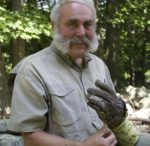 Jim Hascup
Jim Hascup
Ringwood, New Jersey
Completed U. S. Super Slam: 1997
“We called this the train whistle bird because we didn’t have to make a call. As we were coming in, the train in town blew and the bird answered. It’s all good. We’ll go that way. So we started walking over that way. Train whistle went again, and the bird gobbled again. My God, this is great. “I don’t have to make a call, Peck.” So we got over there. The bird’s coming towards us. And every time that train blew his whistle, that bird would gobble again. So, I said, “Sit down right here.” Well, Peck is trying to make a video of this, and he couldn’t even get the camera up—the bird was coming that quick.
“That bird came right into sight, I shot and killed that bird. I jumped the fence, got over there. That was a low barbed wire fence. I got the bird. On my way back, I had the bird in my hand. I’m holding him up for Peck to see. I lowered the bird a little bit as I was walking, and I’ll be damned if it was that top wire again. It hit the bird, and the electricity went right up the bird and right into my hand. Again, I threw the bird down. I had the gun over my shoulder. And it went flying. Peck started to laugh and so did I.”
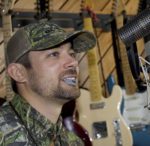 Dave Owens
Dave Owens
Acworth, Georgia
Completed U. S. Super Slam: 2016
“With my approach—I think, like Doc was saying earlier, a minimalist approach—I enjoy stepping into nature and becoming part of it. I wanna almost become something that can walk through the woods and the squirrel sees me and he is not alarmed. Try to get in there and disrupt as little as possible. Become a hen turkey. Do exactly what a hen turkey would do. Be in the locations where a hen turkey would be. That’s what’s going to put you in the right spot to kill a turkey, kill a gobbler.”
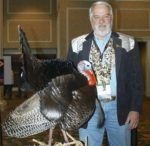 Jon Pries
Jon Pries
Trout Run, Pennsylvania
Completed U. S. Super Slam: 2008
“My God, yes. Yeah, I sure do [remember my first turkey]. I was 16 years of age and we lived out in the country, in a 45-acre farm. Mostly like this—it wasn’t active farming. There was a farmer who put some corn in. But 45 acres surrounded by other bigger farms and a mountainside nearby. And I got off the school bus and ran across the field to get to the house as quick as I could. Had my school clothes and my loafers on. Grabbed my grandfather’s double side-by-side 16-gauge Lefever and took it for a walk. Whether I was going to see a rabbit or a pheasant, and turkeys wasn’t even a consideration that day.
“So I walked down the dirt road, cut up a logging road, entered the woods. And as I started to enter the woods on this logging road, I stopped for a minute and there was a lot of noise up in this flat up above me on a bench. And I listened for a while, but I couldn’t figure out what the heck it was.”
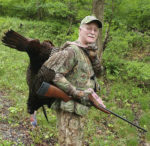 Daniel Rorrer
Daniel Rorrer
Pulaski, Virginia
Completed U. S. Super Slam: 2011
“I started calling and two gobblers came in with a hen. This hen, she went all to pieces. She was a dominant hen. I mean, she was fussing with me—we was cutting one another off and back and forth. She came into the decoys and the two gobblers came strutting in behind her. So I was getting ready to pull the trigger on one of them. And just before I did, to my left out of my side vision, I seen this turkey coming running just as hard as he could run. He was the dominant bird so he came down, ran the other two turkeys off and they all disappeared up over the break. Well, this hen, she just stood there. And, I mean, it didn’t move a feather. She just stood there, planted there. And after things settled down then she started calling and I thought to myself: Well, it just don’t get better than this. She’s gonna, she’s gonna be my caller.”
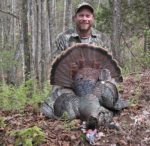 Tom “Doc” Weddle
Tom “Doc” Weddle
Bloomington, Indiana
Completed U. S. Super Slam: 2006 and 2011
“Turkeys captivated my soul from the very first time I heard one gobble, which actually happened while squirrel hunting in August. And then, when I finally saw my first one, I thought to myself: “Oh, my God! I’ve spent my whole life in the woods, but I’ve never seen anything so beautiful. I love hunting of all kinds, but there is nothing like turkey hunting. It’s intriguing and exciting beyond measure, and you get to communicate with the birds in their own language. I also thoroughly enjoy the unique aspect of taking on these individual birds one-on-one in their own domain—and the contemplative chess-match way in which most turkey hunts transpire. The sport just fits me.”
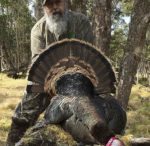 James Wilhelm
James Wilhelm
Eagle Rock, Virginia
Completed U. S. Super Slam: 2012
“When I pulled the trigger on the last, it was right at daylight in Arizona. And there was two or three goblins coming in. I had a buddy sitting up in the truck waiting on them. He didn’t kill them. And I just sat there. It just took me probably 10 minutes to decide I’m gonna get up and go over. You just didn’t want to lay a hand on that bird but I wanted to be sure it was dead to start with, [laughing] I mean, but relief and pride more. I mean there’s some pride in it. You finished what you started. It was the end of the quest.”
ORDER MULTIPLE GIFT COPIES OR RESERVE A SIGNED LIMITED EDITION: Telephone 425-486-3638
Be Sure to Read Turkey Men Volume 1 and Add to Your Hunting Library!
Featuring Jeff Budz, David Ellis, Tony Hudak, Rob Keck, Clyde Neely, Randy Stafford
Published February 2017 and shipping now
Only $49.95 for each standard volume
Hardcover
220 pages each book
Featuring hundreds of color photographs
Signed leather-bound limited edition for sporting book collectors, numbered 1 through 49: $149.95
—SAMPLE EXCERPTS FROM VOLUME 1
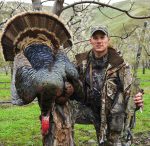 Jeff Budz
Jeff Budz
Okeechobee, Florida
Completed U. S. Super Slam: 2015
“When you start out in the morning, you start out nice and soft with the slate call, and then you work your way up. My goal is to get him from a slate to a mouth call. And I go slate and get an answer. Slate—get an answer. Slate—get an answer. This is over time. Then I go to the mouth call. If I get an answer I give it to him again. And if I get another answer then I put the slate away. I don’t touch it because I want to be hands free. Then I have two diaphragms I keep in my mouth. I just change up all the sounds if need be and there goes the chess match. I don’t sit. Well, I say that, but in West Virginia there I was and the season closes in 10 minutes. It’s just before 1 and I was like: I can’t believe it. I’m not going to get a bird. Then I called and he answered. You’ve got to be kidding me. And I hit it again. And here he comes marching up the mountain. And I couldn’t believe it. Shot him three minutes before the close. Rarely do I sit by a tree. I usually go to a ridge, you know, and do a really loud box to get way out there.”
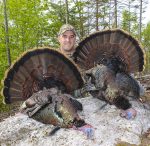 David J. Ellis
David J. Ellis
Crestview, Florida
Completed U. S. Super Slam: 2016
“I was in Rhode Island right across the Connecticut line with my friend Ron Collins. It was the last day of the hunt. I had already killed my bird. I told Ron, “Look, you go down this trail I’ll go down that trail and let’s just listen for one when it goes up to roost.” So I’m sitting there and, after five or six days of nonstop hunting, I was exhausted. It’s basically in line with the Providence airport. So this airplane goes over it does something, it drops the afterburner to burn some fuel off or whatnot. And as soon as it does that [makes gobbling sound]. Out of instinct I jumped up and ran as fast as I could to the top of that hill. I could tell it was a good ways off but I wanted to be up high so I pinpoint it. It gobbled. I swear to God. It shock-gobbled to the afterburner—first time I’ve heard that happen. So get up on the hill and I hear him gobble. I take my G.P.S. and it looks like it’s in somebody’s backyard.”
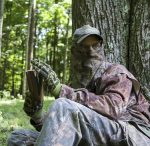 Tony Hudak
Tony Hudak
Noxen, Pennsylvania
Completed U. S. Super Slam: 2016
“In the spring I’m listening for gobblin’ turkeys. I’m just out taking numbers because the way I look at it is for every gobblin’ bird you hear there’s four or five more that are gobblin’ right that same location. Years ago I had no problems coming up with 120, 130 birds that I heard before season. So you know you could easily say in that whole area whatever that radius was at the time there was probably two hundred turkeys there. For the taking. So my secret is to just get out there and spend time in the woods ahead of time. Put in as much time as you can—even if you don’t leave the road. Just get out there and listen. But you know time in the woods can’t be taken away. That’s where you gotta be. That’s essential. That’s absolutely essential.”
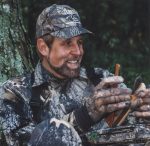 Rob Keck
Rob Keck
Edgefield, South Carolina
Completed U. S. Super Slam: 1997
“Turkeys can hang up for a number of reasons. Usually it’s either a geographic or a physical obstacle, sometimes a fence, a hen, a creek or a place where he was spooked on an earlier occasion. If you’re in new country and you don’t know what all is out there and in front of you, a woven wire hog fence, that’s maybe 70 years old stretched out off into the distance with sections that may not even exist. But if there’s an old section standing between you and him, he hits that wire and he’ll go back and forth, back and forth, with a fence he normally just walks around. You’re calling. He’s strutting. He’s excited. He’s gobbling. He can’t figure out how to get there. I’ve lost so many birds to fences, it’s unbelievable. I’ve also had some that get to a ditch and would not cross it, only to find out if I got to the other side he came right to me. So it’s those barriers that to me, more times than any, will hang up the turkey. The more intimate knowledge you have of the lay of the land, the better to your advantage.”
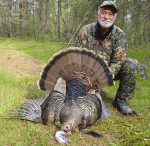 Clyde Neely
Clyde Neely
Kingwood, Texas
Completed U. S. Super Slam: 2012
“Because every animal I’ve ever ever hunted has different ways of living and surviving. They all have predators. We’re predators when we’re hunting wild turkeys, and so they’re always on the defensive. So for us to defeat them on their own turf, in their own world, is quite an accomplishment. I think that a turkey is unique—their eyesight, their hearing, everything about them is different than any other animal I’ve ever, ever hunted. On any level. They are, in my opinion, the hardest animal I’ve ever hunted. They are the most difficult to defeat. They just have an innate ability to sense something being wrong. You can be completely camouflaged, completely still, everything and I’ve seen birds stop 200 yards away, and for no reason at all, turn around and go the other way. And I know they didn’t see me. I know they didn’t hear me. I had watched them for three days take an identical route and then, when I’m waiting with a gun, boop—and for no apparent reason they turn and disappear: No, I’m not going to do that today.”
 Randy Stafford
Randy Stafford
Franklinton, Louisiana
Completed U. S. Super Slam: 2010
“I prefer to sit and wait but the turkey is going to dictate what you do. If you’re on a turkey at daybreak and set up and he’s coming, just give him time. The big hangup with turkeys in the morning is having hens with him. If he has hens with him it’s going to be difficult to get that bird to give up what he’s got to come see what you are. But in that particular case, if he won’t come to you make you some mental notes: Know what he did. Know where he went. Know why he didn’t come to you. I’m going to say 90 percent of taking a turkey is being where that turkey wants to go anyway. If you’re where he normally goes it’s going to be a lot easier to get him to come to you. If you’re trying to call him somewhere he doesn’t like to go or doesn’t usually go, it’s going to be more difficult to get to that bird to come to you.”
RESERVE A SIGNED LIMITED EDITION:
Telephone 425-486-3638

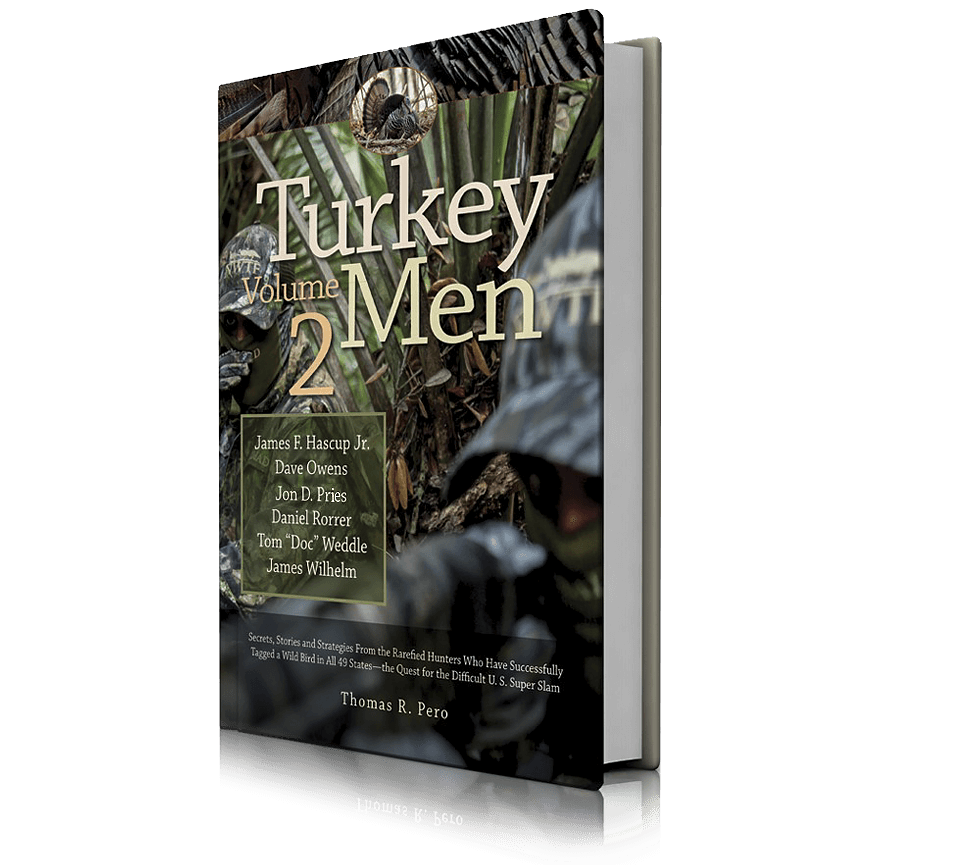
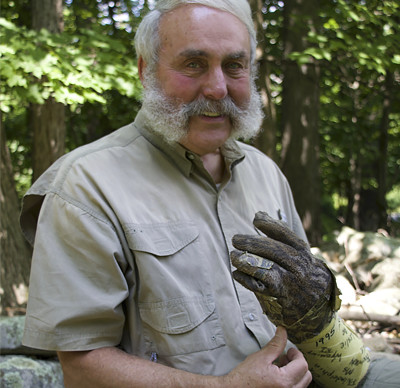
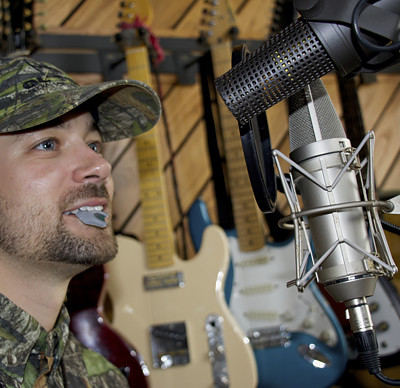
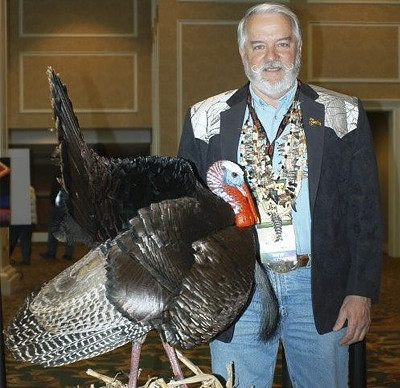


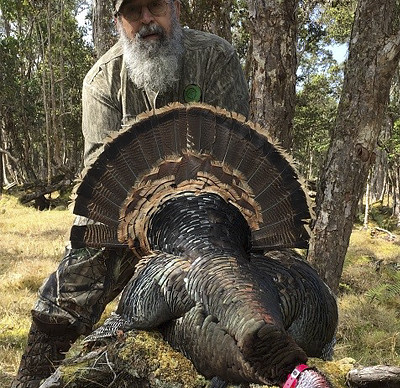
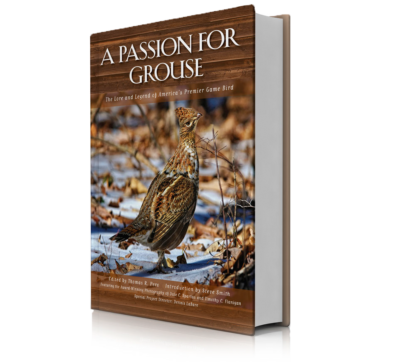
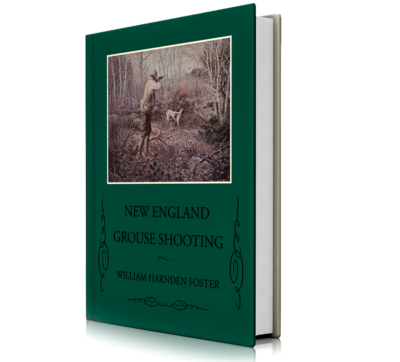
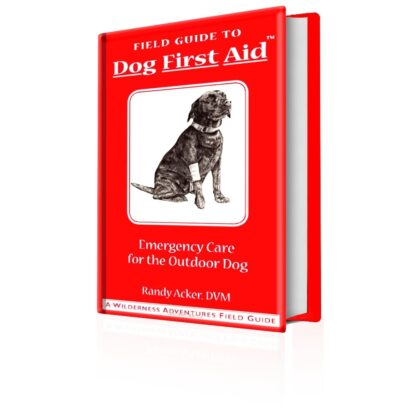
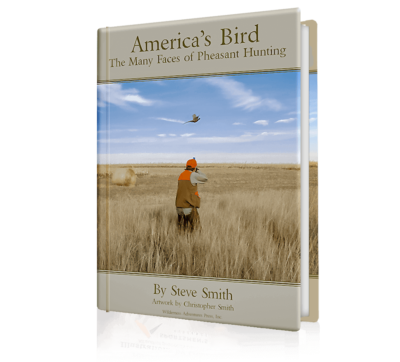
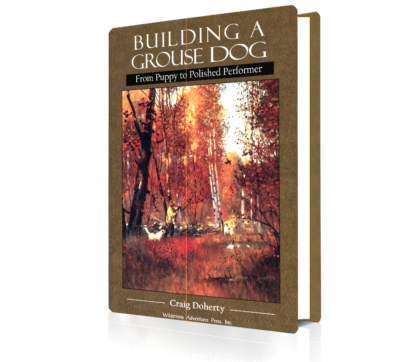
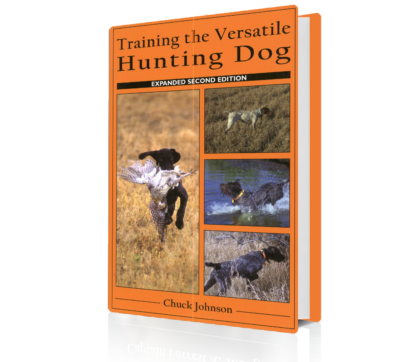
Reviews
There are no reviews yet.